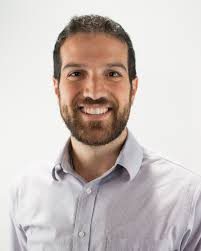Danny Aqua: School choice programs have been wildly successful in Florida. Now cities are trying to limit nonpublic schools.
Florida Politics | January 16, 2025
Some South Florida municipalities blame nonpublic schools for dwindling public school enrollment and turn to zoning to restrict their growth.

Danny Aqua
“If you can’t beat them, zone them out of existence.”
As some urban school districts in Florida experience dwindling public school enrollment, some South Florida municipalities blame nonpublic schools and turn to zoning to restrict their growth.
The City of Margate recently passed an ordinance making the minimum lot size for a high school 45 acres – in other words, enough space to fit half of Disneyland.
The City of Hollywood is currently deliberating changes to its zoning ordinance that would effectively ban all but the wealthiest of private schools from opening within the city limits.
And in Hallandale Beach, recent changes to its zoning code mean that no new schools can open in the city without a prohibitive $150,000+ worth of extra planning fees and 12-18 months’ worth of traffic studies and public meetings – with no guarantee the city will ever approve the project.
These drastic measures come at a time when parents want more schooling options for their children, not less.
The battle against nonpublic schools is nothing new. As far back as 1922, the Ku Klux Klan helped pass an amendment to the Oregon constitution requiring all students to attend public schools. Spoiler Alert: this was later declared unconstitutional by the U.S. Supreme Court.
The battle is also not just relegated to Margate, Hollywood or Hallandale Beach. Across South Florida, nonpublic schools face lengthy, expensive, and often prohibitive approval processes. This is according to a recent study by Teach Coalition that found that of 35 South Florida localities surveyed, nearly 90% severely restrict where nonpublic schools can open.
In many of those cities, schools are not allowed in any zoning district without going through a lengthy, expensive, and unpredictable approval process.
The result? In South Florida, it’s generally easier to open a bar — or even a smoke shop — than to open a new private school.
As an advocate for Jewish day schools, I have seen school after school unable to open or expand in South Florida. Many of our schools have waitlists, and recent enrollment data shows that in a few years, up to 2,000 children currently in Jewish day schools will not have a spot in a Jewish high school.
Zoning officials aren’t coy about why they are creating these roadblocks to new schools. In fact, in a recent City Commission meeting, one Commissioner plainly stated that Tallahassee’s support for nonpublic schools is all part of its plan to “destroy our public education system.”
Another Commissioner stated that private schools are not dissimilar to smoke shops in that too much competition is a bad thing. Finally, there was the implication that we should mandate children to attend their community public school in the name of creating unity, stating, “Allowing a school on every corner, you are not creating community, you are dividing community. You are separating the students from a community school and saying these students can go to this little school and these students can go to that little school.”
With such opposition at the local level, only the Florida Legislature can come to the rescue. If Florida truly wants to empower parents, the state should look to do two things: 1) provide private schools the same zoning flexibilities that public schools receive, and 2) pass a statewide preemption allowing small schools to open regardless of local zoning restrictions.
Florida’s school choice policies will only be as successful as the educational marketplace permits. Without the ability to create new schools and expand existing schools, parents will have nowhere to use their scholarships.
Every child deserves to find the best school for them. Let’s make sure those schools can exist.






